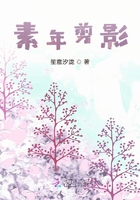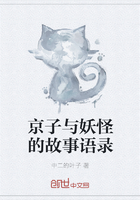He did not leave for Cambridge the next day, as he hadsaid he would. He deferred his departure a whole week, and during that time he made me feel what severepunishment a good yet stern, a conscientious yet implacable man can inflict on one who has offended him. Without one overt act of hostility, one upbraiding word, he contrived to impress me momently with the conviction that I was put beyond the pale of his favour.
Not that St. John harboured a spirit of unchristian vindictiveness—not that he would have injured a hair of my head, if it had been fully in his power to do so. Both by nature and principle, he was superior to the mean gratification of vengeance:he had forgiven me for saying I scorned him and his love, but he had not forgotten the words; and as long as he and I lived he never would forget them. I saw by his look, when he turned to me, that they were always written on the air between me and him;whenever I spoke, they sounded in my voice to his ear, and their echo toned every answer he gave me.
He did not abstain from conversing with me: he even called me as usual each morning to join him at his desk; and I fear the corrupt man within him had a pleasure unimparted to, and unshared by, the pure Christian, in evincing with what skill he could, while acting and speaking apparently just as usual, extract from every deed and every phrase the spirit of interest and approval which had formerly communicated a certain austere charm to his language and manner. To me, he was in reality become no longer flesh, but marble; his eye was a cold, bright, blue gem; his tongue a speaking instrument—nothing more.
All this was torture to me—refined, lingering torture. It kept up a slow fire of indignation and a trembling trouble of grief, which harassed and crushed me altogether. I felt how—if I were his wife, this good man, pure as the deep sunless source, could soon kill me, without drawing from my veins a single drop of blood, or receiving on his own crystal conscience the faintest stain of crime. Especially I felt this when I made any attempt to propitiate him. No ruth met my ruth. He experienced no suffering from estrangement—no yearning after reconciliation; and though, more than once, my fast falling tears blistered the page over which we both bent, they produced no more effect on him than if his heart had been really a matter of stone or metal. To his sisters, meantime, he was somewhat kinder than usual: as if afraid that mere coldness would not sufficiently convince me how completely I was banished and banned, he added the force of contrast; and this I am sure he did not by force, but on principle.
The night before he left home, happening to see him walking inthe garden about sunset, and remembering, as I looked at him, that this man, alienated as he now was, had once saved my life, and that we were near relations, I was moved to make a last attempt to regain his friendship. I went out and approached him as he stood leaning over the little gate; I spoke to the point at once.
“St. John, I am unhappy because you are still angry with me.Let us be friends.”
“I hope we are friends,” was the unmoved reply; while he still watched the rising of the moon, which he had been contemplating as I approached.
“No, St. John, we are not friends as we were. You know that.”
“Are we not? That is wrong. For my part, I wish you no ill and all good.”
“I believe you, St. John; for I am sure you are incapable of wishing any one ill; but, as I am your kinswoman, I should desire somewhat more of affection than that sort of general philanthropy you extend to mere strangers.”
“Of course,” he said. “Your wish is reasonable, and I am far from regarding you as a stranger.”
This, spoken in a cool, tranquil tone, was mortifying and baffling enough. Had I attended to the suggestions of pride and ire, I should immediately have left him; but something worked within me more strongly than those feelings could. I deeply venerated my cousin’s talent and principle. His friendship was of value to me: to lose it tried me severely. I would not so soon relinquish the attempt to reconquer it.
“Must we part in this way, St. John? And when you go to India, will you leave me so, without a kinder word than you have yet spoken?”
He now turned quite from the moon and faced me.
“When I go to India, Jane, will I leave you? What! do you not go to India?”
“You said I could not unless I married you.”
“And you will not marry me! You adhere to that resolution?”
Reader, do you know, as I do, what terror those cold people can put into the ice of their questions? How much of the fall of the avalanche is in their anger? of the breaking up of the frozen sea in their displeasure?
“No. St. John, I will not marry you. I adhere to my resolution.”
The avalanche had shaken and slid a little forward, but it did not yet crash down.
“Once more, why this refusal?” he asked.
“Formerly,” I answered, “because you did not love me; now, I reply, because you almost hate me. If I were to marry you, you would kill me. You are killing me now.”
His lips and cheeks turned white—quite white.
“I should kill you—I am killing you? Your words are such as ought not to be used: violent, unfeminine, and untrue. They betray an unfortunate state of mind: they merit severe reproof: they would seem inexcusable, but that it is the duty of man to forgive his fellow even until seventy-and-seven times.”
I had finished the business now. While earnestly wishing to erase from his mind the trace of my former offence, I had stamped on that tenacious surface another and far deeper impression, I had burnt it in.
“Now you will indeed hate me,” I said. “It is useless to attempt to conciliate you: I see I have made an eternal enemy of you.”
A fresh wrong did these words inflict: the worse, because they touched on the truth. That bloodless lip quivered to a temporary spasm. I knew the steely ire I had whetted. I was heart-wrung.
“You utterly misinterpret my words,” I said, at once seizing his hand:“I have no intention to grieve or pain you—indeed, I have not.”















